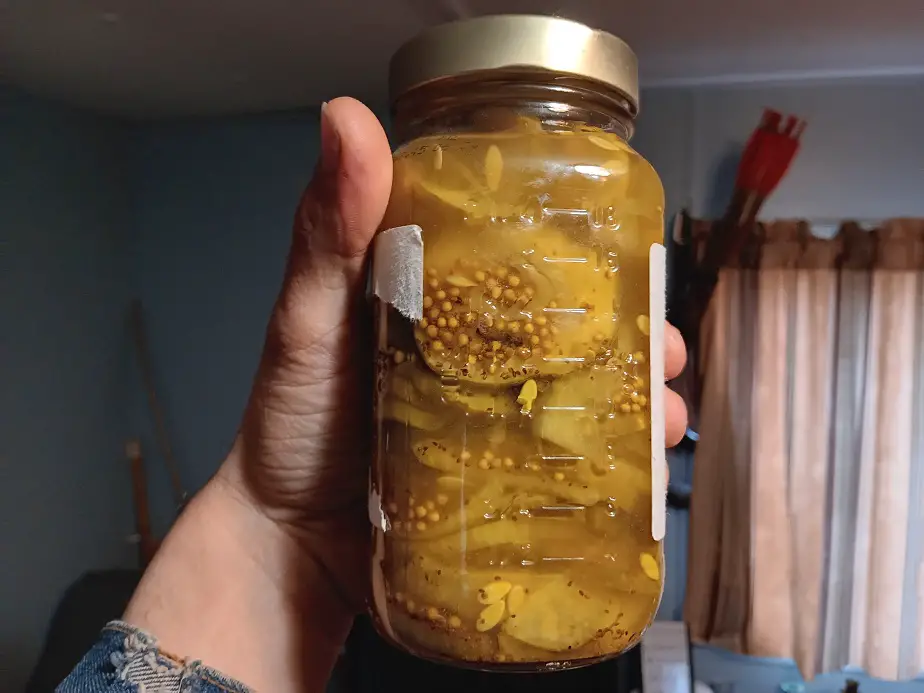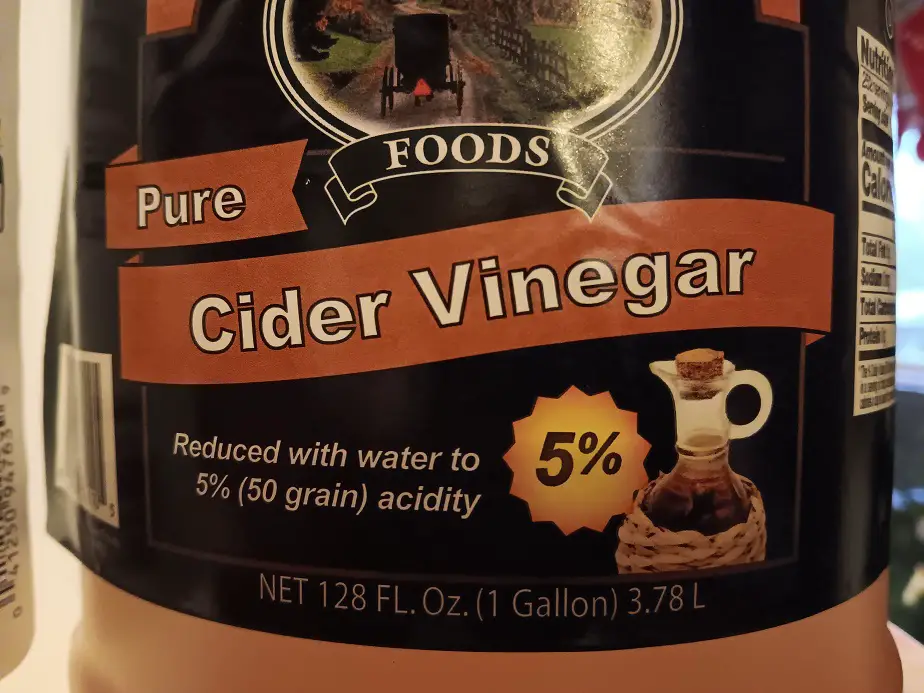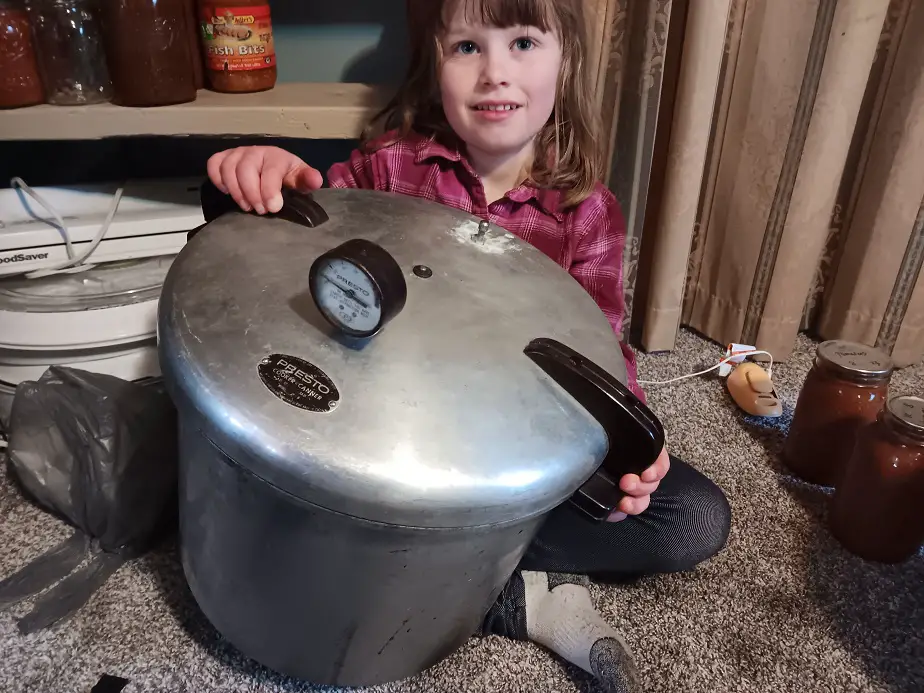My wife makes about five to ten gallons of pickles a year and we all love them. Here’s what we know.
Pickles do not need to be pressure canned. It’s unnecessary, and the pressure makes pickles mushy. Properly made vinegar pickles do not need any canning to be shelf-stable, but water-bath canning is common to preserve freshness and aid in storage.
Here’s what you need to know about getting started making your own pickles.
Why Don’t Pickles Need to be Pressure Canned?
Pickles don’t need to be pressure canned because they are considered a safe food. Pressure canning is only necessary to properly heat low-acid food to the point of sterilization. Because pickles are an acidic food, they are not recommended to be pressure canned even by the strict US food-preservation standards.
Low-acid foods are considered safe for water-bath canning throughout the world, with proper processing time. But, in the US it’s considered more potentially unsafe except with pressure canning. This strong recommendation to pressure can everything low-acid is for anything with a pH above 4.6.
Pickles should have a pH of 4.6 or below, which means that they are considered an acidic food. Most pickles are closer to a pH of 3.5. I just measured the pH of four different recipes of pickles in our pantry. They were all between 3.2 and 3.8.
So, just make sure you have enough vinegar in your brine and you’ll be fine. The rule of thumb is equal parts vinegar and water. That will give you a wide safety margin and not be too vulnerable. The mix itself is usually about 2.6 pH, but after adding vegetables, it tends to end up closer to 3.5 pH.
Heating vinegar reduces its acidity, but the 50-50 ratio of vinegar to water will still be safe even after practical cooking. I use the 50-50 ratio for all things pickled.
I did pressure can pickles once. Bad Idea. They got super mushy and it just wasn’t very nice.

How to Process Pickles for Storage
Pickles are generally either packed in a hot brine, water-bath canned, or packed cold and left in a refrigerator for two weeks. Those are very safe and effective ways to process pickles for storage. The lid doesn’t have to be sealed air-tight, just be sure the pickles are completely immersed in the brine.
My wife prefers to water-bath can our pickles. It’s a great way to get spices to permeate the pickle. If pack them cold and refrigerate, any spices used will not come across as strong in the pickle. There are a lot of flavors and oils that have to be heated out of spices before it can be absorbed into a pickle.
She just fills the cucumber-filled jars with hot brine then process the jars in a kettle of boiling water for 10 or 15 minutes. Sometimes, she just pours boiling brine over sliced cucumbers. That seems to do it fine as long as they are sliced up.
When I make pickles, I raw-pack them in a cold brine. No cooking or heating. That’s just how my 95-year-old grandmother did it. I’ll cold-pack any vegetable and even meats in vinegar. I’m not supposed to recommend you do that last one.
I usually put them in the fridge for a few weeks if the weather is warm. In winter, I’ll just put them in the colder part of the pantry. Technically, with a big pickle, the inside can go bad before the vinegar soaks into the middle if it’s out at room temperature. But, I’ve never heard of that happening so it’s not as big of a deal as some people make it out to be.

What Vinegar to Use for Making Pickles?
Any vinegar can work to make a pickle, but most recipes were designed for a 5% acetic acid vinegar. At 5% strength, the pH should be around 2.4 and it will be useable for any normal pickle recipe. Some vinegars are slightly more or less acidic based on other compounds in the vinegar.
I use a standard cider vinegar or distilled vinegar. It’s usually All the vinegar I’ve tested have been in the 2.4-ish range except for one, a balsamic vinegar. It was closer to 2.7 pH. Still, it would work with the 50-50 ratio if you wanted. The good vinegars have 5% acetic aid (should be on the label somewhere).
You can test the pH of a vinegar or a brine. Testing the brine would be more accurate and useful. You can use those little pool pH testing strips or a digital pH tester. All that really matters is that the pH of your finished product is at or below 4.7. you can just test the brine once it’s sat with the pickles for a few weeks.
Do Homemade Pickles Need to Be Refrigerated?
Pickles rarely need refrigeration as long as they are made to a pH at or below 4.6. You may keep them refrigerated and they may last longer there but it is not required for finished pickles. Pickles can be stored in covered, unsealed containers at room temperature when fully prepared.


